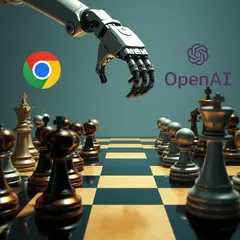
OpenAI’s Browser Ambitions: Challenging Google’s Dominance
OpenAI is reportedly considering the development of a web browser with integrated ChatGPT functionality, potentially challenging Google Chrome’s market dominance. This strategic move involves hiring key ex-Google Chrome developers and exploring partnerships with major companies for AI-powered search features. While still in early stages, the project signals OpenAI’s ambition to compete directly with Google in the browser and search markets. The initiative coincides with legal challenges to Google’s market position, creating potential opportunities for new entrants. OpenAI’s browser plans, if realized, could significantly impact user interaction with online content and reshape the competitive landscape in web technologies.








